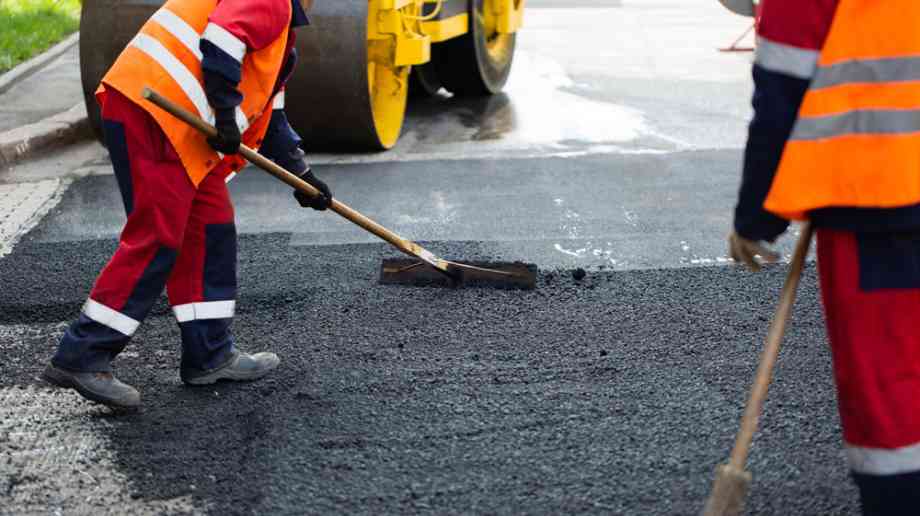
Government investment in local roads
Rick Green, chair of the Asphalt Industry Alliance, investigates how best to use government funding for road improvements.
Potholes on our local roads are a curse, but they are not inevitable: they are the symptom of an underfunded network, one which has deteriorated to a point where it is more susceptible to the effects of extreme weather events, increased traffic volumes and rising costs due to inflationary pressures.
Poor road conditions can also be the cause of accidents and damage to vehicles, as recent reports from both the RAC and AA would attest, as well being a source of immense frustration for drivers and potentially dangerous for vulnerable road users such as cyclists and pedestrians.
Local authority highway teams have a legal responsibility to keep our roads safe, but just haven’t had the funds to do so in a cost-effective, proactive and most sustainable way. They can only do so much with the resources they have been given, but repeatedly filling potholes is indicative of a network on the edge and is less efficient when it comes to materials usage and carbon emissions than planned preventative maintenance in enhancing resilience.
That’s why we’ve been calling for surety of funding over the long-term, so we welcomed the Government’s announcement of record investment in local road maintenance. The additional £8.3 billion over 11 years is a positive move which recognises that improving our local roads is about more than filling in potholes and has the potential to be a real game changer. This 11-year funding commitment, coupled with greater transparency of reporting, should allow local highway teams to take a longer-term view and implement a more cost-effective whole-life approach to maintaining the network.
Long-term funding
The AIA-supported All Party Parliamentary Group for Better Roads report Working for Better Roads, launched in September 2023, highlighted that longer-term funding, direct budget allocation and more accountability leads to improved local road conditions, so we are pleased that these fundamentals form part of the Department for Transport’s announcement.
Alarm
The APPG report was informed by the results of our Annual Local Authority Road Maintenance (ALARM) survey, an independent survey we commission each year of local authority highway departments in England (including London) and Wales. It aims to take a snapshot of the general condition of the local road network – based on information supplied directly by those responsible for its maintenance – and the data received provides a means of tracking any improvement or deterioration as well as allowing trends to be reported.
The APPG report reviewed the success of the Pothole Action Fund, which formed part of a six-year commitment (2015/16 to 2020/21) to English local authority highway teams, who were able to use the secure funding for preventative maintenance and resurfacing works as well as pothole repairs.
It used ALARM data to track the impact of the additional funds, demonstrating that the Pothole Action Fund was successful in contributing to improvements in the structural conditions of the local road network but, since its replacement, many of the gains made have been lost.
Analysis indicates that this funding was allocated directly for highway maintenance and led to a marked improvement in the proportion of the local network classed as being in ‘good’ condition, indicating they had 15 years or more structural life remaining.
Almost 12,400 miles (seven per cent) of the English local road network moved into this category during the life of the Fund. But, since 2021, when the Pothole Action Fund was incorporated into local authorities’ general block highway funding, the number of roads classed as ‘good’ has dropped by five per cent (8,800 miles).
The link between continued underinvestment and the ongoing structural decline and below-par surface conditions of our local roads is clear. ALARM 2023 reported that it would now take £14.02 billion – the highest recorded in 28 years of ALARM surveys – to tackle the backlog of repairs in England and Wales and bring them up to a condition from which they could be effectively managed going forward. This equates to more than £68,000 – as a one-off catch-up cost – for every mile of local road in England and Wales.
Benefits
This Government investment will benefit us all as road users and well-kept local roads are also good for the local economy as they allow for more reliable and energy-efficient journeys and keep communities connected.
Surety of funding will also allow local authorities to take a whole-life approach to specifying lower carbon materials, such as asphalts produced at lower production temperatures to reduce the carbon emissions associated with road construction and maintenance.
In addition, longer-term Government investment will also help give the asphalt supply chain confidence to further invest in plant upgrades, materials innovation and technical advancements to support the ongoing development and delivery of lower carbon roads, in line with net zero carbon ambitions.
To summarise, we are cautiously optimistic that the Government’s new £8.3 billion commitment will make a marked difference to the condition of our local roads providing local authority highway teams know exactly what funds will be coming their way each year over the 11-year funding term. This will enable them to support a lower carbon, whole-life approach to local road maintenance and help deliver a sustained improvement in conditions and enhanced network resilience. It would also save money over the long term and ensure our local roads are able to support future challenges.
But, as is often the case, the devil will be in the detail, and it is also important that cash-strapped councils don’t redirect this central Government highway maintenance funding to other areas. That’s why, despite the record levels of pledged investment, tracking allocations to – and spending on – local roads maintenance remains important in the years ahead.


